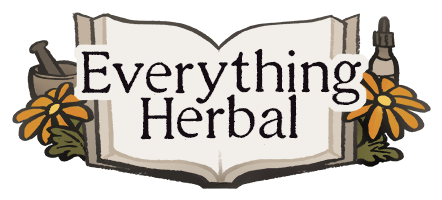Plants and Humankind
Plants and Us
Most of us show an appreciation, if not love, for the plants that surround us. But culturally, even if we recognize the nutritional, medicinal, and aesthetic benefits that plants offer to us, the complexity and deep rooted significance of our relationship with the plant world has been clouded over by the fast pace of technology and the demands of modern life. We are now at a time, however, when many are hearing the call of the green world anew, and for good reason.
Plants have always played an integral role in human culture. Besides providing us with food, plants have always served as our primary source of medicine. We can see that this is true even today in the context of modern pharmaceuticals: consider that of the most 150 commonly prescribed pharmaceutical drugs currently in use 74% derive from plants, 18% from fungi, 5% from bacteria, and 3% from vertebrae species, e.g. snakes and frogs. Plants have also served as a primary and essential source of inspiration behind the world’s great artistic, spiritual and religious practices and traditions.
It is without question that plants are essential to the foundation of life on planet Earth. When it comes to us humans, we simply could not have evolved physically, mentally, or culturally without the great services that plants provide to us. However, when we look at the relationship between human beings and plants closely, we see that it is one characterized by a process of co-evolution and cooperation that has gone on for millions of years. Animals, including human beings, have been shaped by plant life and have shaped it in turn. This process is one of reciprocity, and not one that is dictated and controlled by any of the players in the great web of life.
Modern plant biology has revealed to us that plants possess intelligence, engage in purposeful behaviours, transmit information, and even have a form of memory. When it comes to understanding the fundamentals of our shared life on Earth, it helps if we recognize that plants are not so different from animals after all. As plant scientist Anthony Trewavas has observed: “plants have the same biological criteria for survival as animals – the need to obtain food, to see off competitors, deal with pests and disease, and access mates.”(*1)
We are now in a time characterized by major global ecological challenges, and in order to face them responsibly and with integrity we must regain an understanding of our interdependence with the plant world. Much of the ecological hardship that we are seeing on Earth today has to do with neglecting our relationship to the plants, forgetting and losing sight of the intimacy that human beings have always shared with them. Valuing and protecting plant biodiversity will provide the resources with which we can forge a sustainable future. The plant world is the repository of vital information that will help us to deal with global challenges, from the growing threat of anti-biotic resistant bacteria to the dramatic environmental and climactic changes that are currently underway.
At Everything Herbal one of our primary commitments is to plants as medicine. From the perspective of traditional plant based healing traditions, a healthy organism is one that is in balance with itself and with the dynamic, vital forces that give it and define its life. Plant medicine is holistic medicine, and a holistic state of health means that all of the parts of an organism are working together to sustain a harmonious whole. Holistic health further means that the organism is in balance with the world that surrounds it and of which it is a part. Plant medicine has a great deal to teach us about ourselves, each other, and about the world in which we collectively exist. This has always been true, but it is perhaps especially true now, in these truly unprecedented times. Now is the time to learn to tap into the deep evolutionary memory of our embeddedness in the green world. This memory holds the keys to unlock the understanding of who we are as individuals and as a species, and can show us a great deal about what our place in the world can and should be. May the love that we share for the plants grow and prosper.
*1 Anthony Trewavas. Plant Behaviour and Intelligence. Oxford: Oxford University Press, 2014. Pg. 11.

